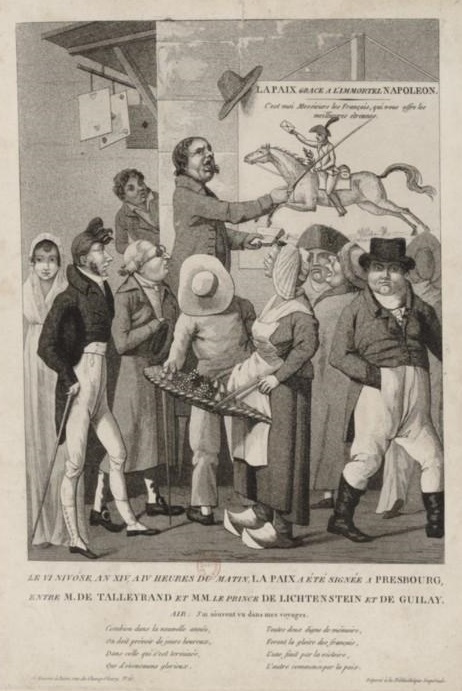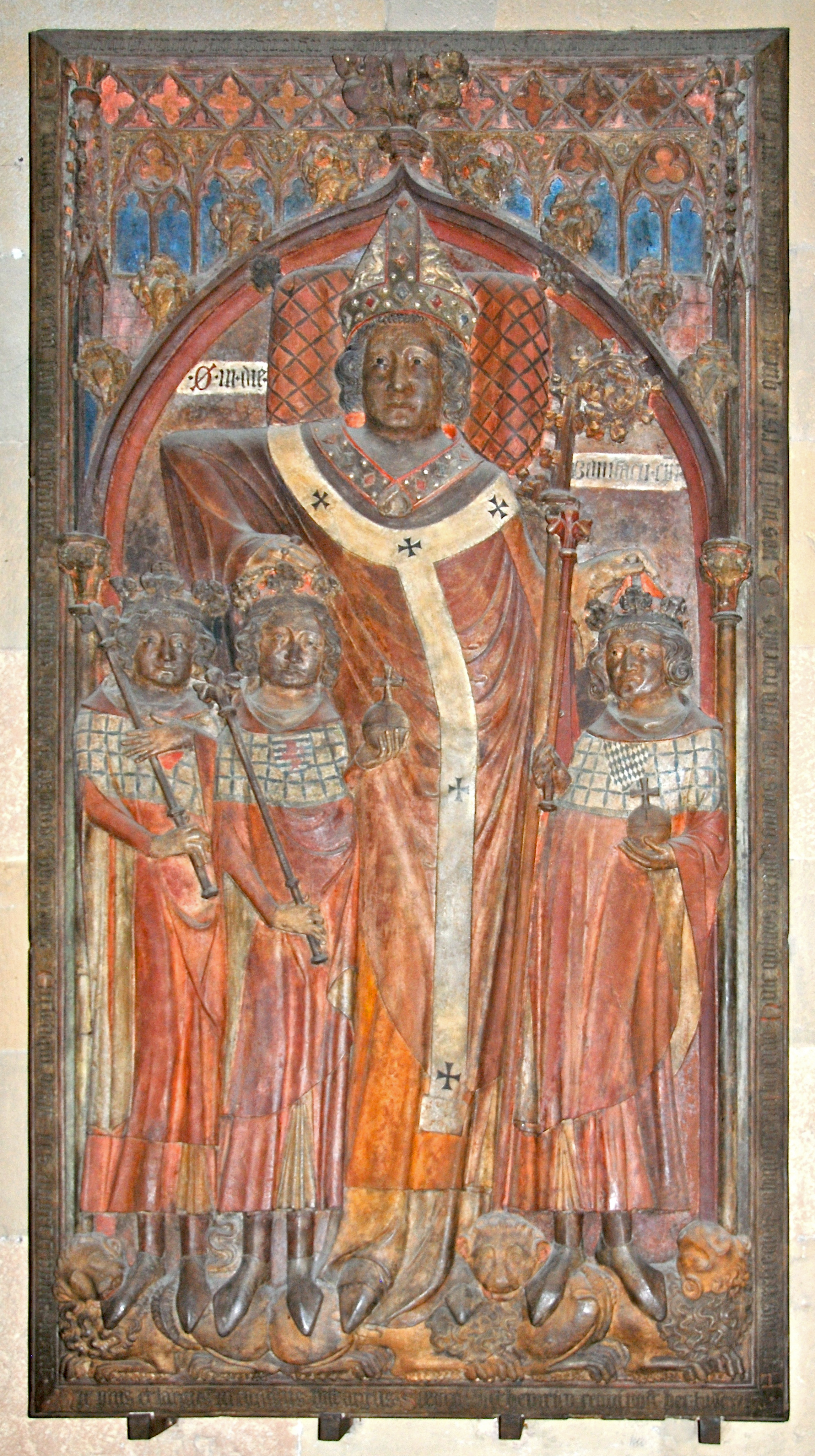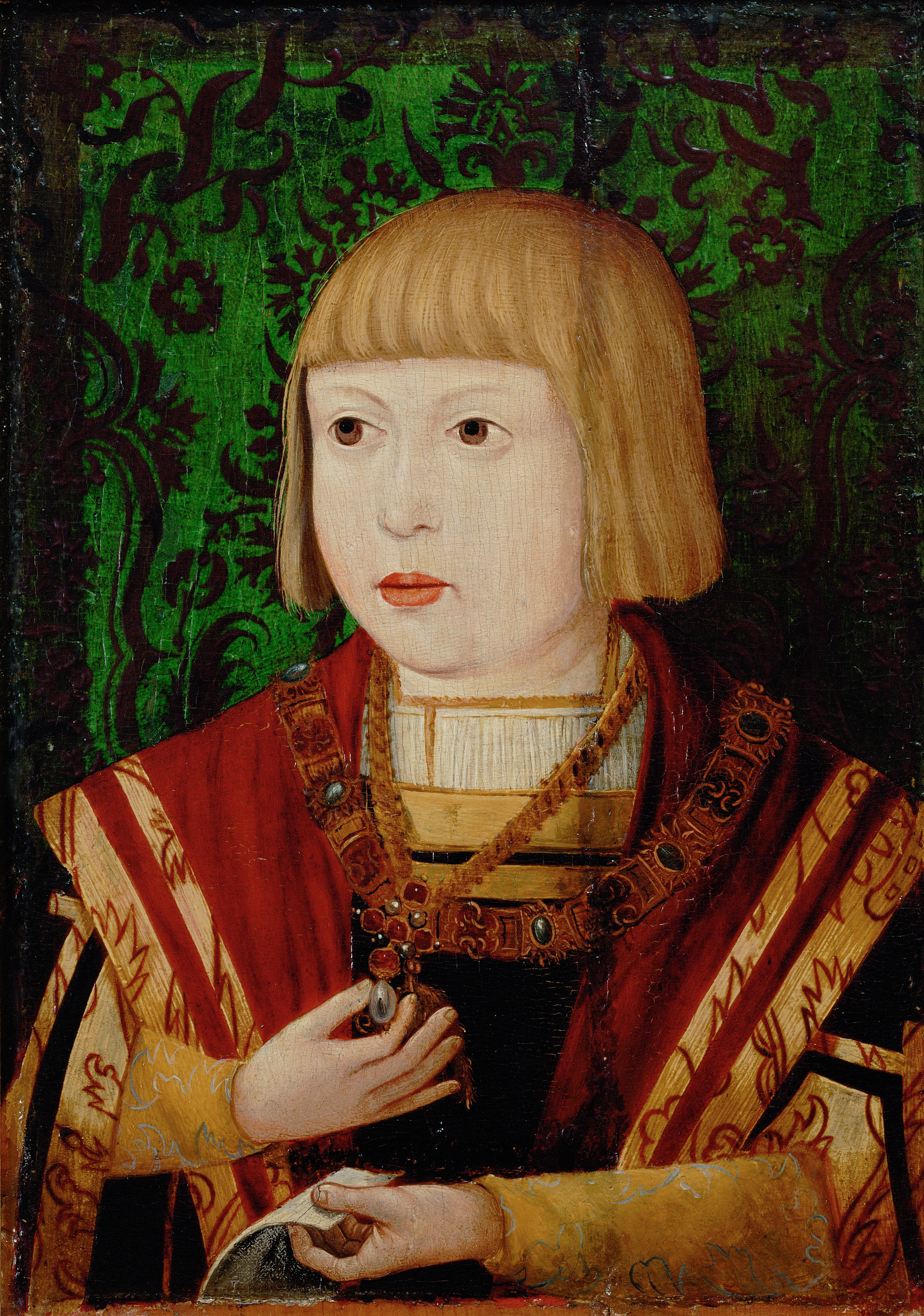|
Aulic Council
The Aulic Council ( la, Consilium Aulicum, german: Reichshofrat, literally meaning Court Council of the Empire) was one of the two supreme courts of the Holy Roman Empire, the other being the Imperial Chamber Court. It had not only concurrent jurisdiction with the latter court, but in many cases exclusive jurisdiction, in all feudal processes, and in criminal affairs, over the immediate feudatories of the Emperor and in affairs which concerned the Imperial Government. The seat of the Aulic Council was at the Hofburg residence of the Habsburg emperors in Vienna. History The Aulic Council (from the Latin ''aula'', court in feudal language, in antiquity a Hellenistic type of grand residence, usually private) was originally an executive-judicial council for the Empire. Originating during the Late Middle Ages as a paid Council of the Emperor, it was organized in its later form by the German king Maximilian I by decree of 13 December 1497. It was meant as a rival to the separate Imperi ... [...More Info...] [...Related Items...] OR: [Wikipedia] [Google] [Baidu] |
Maximilian I, Holy Roman Emperor
Maximilian I (22 March 1459 – 12 January 1519) was King of the Romans from 1486 and Holy Roman Emperor from 1508 until his death. He was never crowned by the pope, as the journey to Rome was blocked by the Venetians. He proclaimed himself Elected Emperor in 1508 (Pope Julius II later recognized this) at Trent, thus breaking the long tradition of requiring a Papal coronation for the adoption of the Imperial title. Maximilian was the son of Frederick III, Holy Roman Emperor, and Eleanor of Portugal. Since his coronation as King of the Romans in 1486, he ran a double government, or ''Doppelregierung'' (with a separate court), with his father until Frederick's death in 1493. Maximilian expanded the influence of the House of Habsburg through war and his marriage in 1477 to Mary of Burgundy, the ruler of the Burgundian State, heir of Charles the Bold, though he also lost his family's original lands in today's Switzerland to the Swiss Confederacy. Through marriage of his so ... [...More Info...] [...Related Items...] OR: [Wikipedia] [Google] [Baidu] |
Legal History Of Germany
The law of Germany (german: das Recht Deutschlands), that being the modern German legal system (german: Deutsches Rechtssystem), is a system of civil law which is founded on the principles laid out by the Basic Law for the Federal Republic of Germany, though many of the most important laws, for example most regulations of the civil code ('' Bürgerliches Gesetzbuch'', or BGB) were developed prior to the 1949 constitution. It is composed of public law (''öffentliches Recht''), which regulates the relations between a citizen/person and the state (including criminal law) or two bodies of the state, and the private law, (''Privatrecht'') which regulates the relations between two people or companies. It has been subject to a wide array of influences from Roman law, such as the Corpus Juris Civilis, to Napoleonic law, such as the Napoleonic Code. History German law has been subject to many influences over the centuries. Until Medieval times the Early Germanic Law, derived fr ... [...More Info...] [...Related Items...] OR: [Wikipedia] [Google] [Baidu] |
Legal History Of The Holy Roman Empire
Law is a set of rules that are created and are enforceable by social or governmental institutions to regulate behavior,Robertson, ''Crimes against humanity'', 90. with its precise definition a matter of longstanding debate. It has been variously described as a science and as the art of justice. State-enforced laws can be made by a group legislature or by a single legislator, resulting in statutes; by the executive through decrees and regulations; or established by judges through precedent, usually in common law jurisdictions. Private individuals may create legally binding contracts, including arbitration agreements that adopt alternative ways of resolving disputes to standard court litigation. The creation of laws themselves may be influenced by a constitution, written or tacit, and the rights encoded therein. The law shapes politics, economics, history and society in various ways and serves as a mediator of relations between people. Legal systems vary between jurisdiction ... [...More Info...] [...Related Items...] OR: [Wikipedia] [Google] [Baidu] |
Peace Of Pressburg (1805)
The Peace of Pressburg; french: Traité de Presbourg was signed in Pressburg (today Bratislava) on 26 December 1805 between French Emperor Napoleon Bonaparte and Holy Roman Emperor Francis II, as a consequence of the French victory over the Russians and Austrians at the Battle of Austerlitz (2 December). A truce was agreed on 4 December, and negotiations for the treaty began. The treaty was signed by Johann I Joseph, Prince of Liechtenstein, and the Hungarian Count Ignác Gyulay for the Austrian Empire and Charles Maurice de Talleyrand for France. Beyond the clauses establishing "peace and amity" and the Austrian withdrawal from the Third Coalition, the treaty also mandated substantial territorial concessions by the Austrian Empire. The French gains of the previous treaties of Campo Formio and Lunéville were reiterated, while recent Austrian acquisitions in Italy and southern Germany were ceded to France and Bavaria, respectively. The scattered Austrian holdings in Swabia we ... [...More Info...] [...Related Items...] OR: [Wikipedia] [Google] [Baidu] |
Battle Of Austerlitz
The Battle of Austerlitz (2 December 1805/11 Frimaire An XIV FRC), also known as the Battle of the Three Emperors, was one of the most important and decisive engagements of the Napoleonic Wars. The battle occurred near the town of Austerlitz in the Austrian Empire (modern-day Slavkov u Brna in the Czech Republic). The decisive victory of Napoleon's Grande Armée at Austerlitz brought the War of the Third Coalition to a rapid end, with the Treaty of Pressburg signed by the Austrians later in the month. The battle is often cited as a tactical masterpiece, in the same league as other historic engagements like Cannae or Gaugamela.Farwell p. 64. "Austerlitz is generally regarded as one of Napoleon's tactical masterpieces and has been ranked as the equal of Arbela, Cannae, and Leuthen."Dupuy p. 102 After eliminating an Austrian army during the Ulm Campaign, French forces seized Vienna in November 1805. The Austrians avoided further conflict until the arrival of the Russians bol ... [...More Info...] [...Related Items...] OR: [Wikipedia] [Google] [Baidu] |
Napoleon I
Napoleon Bonaparte ; it, Napoleone Bonaparte, ; co, Napulione Buonaparte. (born Napoleone Buonaparte; 15 August 1769 – 5 May 1821), later known by his regnal name Napoleon I, was a French military commander and political leader who rose to prominence during the French Revolution and led successful campaigns during the Revolutionary Wars. He was the ''de facto'' leader of the French Republic as First Consul from 1799 to 1804, then Emperor of the French from 1804 until 1814 and again in 1815. Napoleon's political and cultural legacy endures to this day, as a highly celebrated and controversial leader. He initiated many liberal reforms that have persisted in society, and is considered one of the greatest military commanders in history. His wars and campaigns are studied by militaries all over the world. Between three and six million civilians and soldiers perished in what became known as the Napoleonic Wars. Napoleon was born on the island of Corsica, not long a ... [...More Info...] [...Related Items...] OR: [Wikipedia] [Google] [Baidu] |
Veto
A veto is a legal power to unilaterally stop an official action. In the most typical case, a president or monarch vetoes a bill to stop it from becoming law. In many countries, veto powers are established in the country's constitution. Veto powers are also found at other levels of government, such as in state, provincial or local government, and in international bodies. Some vetoes can be overcome, often by a supermajority vote: in the United States, a two-thirds vote of the House and Senate can override a presidential veto. Article I, Section 7, Clause 2 of the United States Constitution Some vetoes, however, are absolute and cannot be overridden. For example, in the United Nations Security Council, the permanent members ( China, France, Russia, the United Kingdom, and the United States) have an absolute veto over any Security Council resolution. In many cases, the veto power can only be used to prevent changes to the status quo. But some veto powers also include the ... [...More Info...] [...Related Items...] OR: [Wikipedia] [Google] [Baidu] |
Protestant
Protestantism is a branch of Christianity that follows the theological tenets of the Protestant Reformation, a movement that began seeking to reform the Catholic Church from within in the 16th century against what its followers perceived to be growing errors, abuses, and discrepancies within it. Protestantism emphasizes the Christian believer's justification by God in faith alone (') rather than by a combination of faith with good works as in Catholicism; the teaching that salvation comes by divine grace or "unmerited favor" only ('); the priesthood of all faithful believers in the Church; and the '' sola scriptura'' ("scripture alone") that posits the Bible as the sole infallible source of authority for Christian faith and practice. Most Protestants, with the exception of Anglo-Papalism, reject the Catholic doctrine of papal supremacy, but disagree among themselves regarding the number of sacraments, the real presence of Christ in the Eucharist, and matters of ecclesiasti ... [...More Info...] [...Related Items...] OR: [Wikipedia] [Google] [Baidu] |
Archchancellor
An archchancellor ( la, archicancellarius, german: Erzkanzler) or chief chancellor was a title given to the highest dignitary of the Holy Roman Empire, and also used occasionally during the Middle Ages to denote an official who supervised the work of chancellors or notaries. The Carolingian successors of Pepin the Short appointed chancellors over the whole Frankish realm in the ninth century. Hincmar refers to this official as a ''summus cancellarius'' in ''De ordine palatii et regni'' and an 864 charter of King Lothair I refers to Agilmar, Archbishop of Vienne, as archchancellor, a word which also begins appearing in chronicles about that time. The last Carolingian archchancellor in West Francia was Archbishop Adalberon of Reims (969-988), with the accession of Hugh Capet the office was replaced by a ''Chancelier de France''. At the court of Otto I, then King of Germany, the title seems to have been an appanage of the Archbishop of Mainz. After Otto had finally deposed King ... [...More Info...] [...Related Items...] OR: [Wikipedia] [Google] [Baidu] |
Elector Of Mainz
The Elector of Mainz was one of the seven Prince-electors of the Holy Roman Empire. As both the Archbishop of Mainz and the ruling prince of the Electorate of Mainz, the Elector of Mainz held a powerful position during the Middle Ages. The Archbishop-Elector was president of the electoral college, archchancellor of the empire, and the Primate of Germany as the papal legate north of the Alps, until the dissolution of the empire in 1806. The origin of the title dates back to 747, when the city of Mainz was made the seat of an archbishop, and a succession of able and ambitious prelates made the district under their rule a strong and vigorous state. Among these men were important figures in the history of Germany such as Hatto I, Adalbert of Mainz, Siegfried III, Peter of Aspelt and Albert of Brandenburg. There were several violent contests between rivals for the archbishopric, and their power struggles occasionally moved the citizens of Mainz to revolt. The lands of the elec ... [...More Info...] [...Related Items...] OR: [Wikipedia] [Google] [Baidu] |
Ferdinand I, Holy Roman Emperor
Ferdinand I ( es, Fernando I; 10 March 1503 – 25 July 1564) was Holy Roman Emperor from 1556, King of Bohemia, Hungary, and Croatia from 1526, and Archduke of Austria from 1521 until his death in 1564.Milan Kruhek: Cetin, grad izbornog sabora Kraljevine Hrvatske 1527, Karlovačka Županija, 1997, Karslovac Before his accession as Emperor, he ruled the Austrian hereditary lands of the Habsburgs in the name of his elder brother, Charles V, Holy Roman Emperor. Also, he often served as Charles' representative in the Holy Roman Empire and developed encouraging relationships with German princes. In addition, Ferdinand also developed valuable relationships with the German banking house of Jakob Fugger and the Catalan bank, Banca Palenzuela Levi Kahana. The key events during his reign were the conflict with the Ottoman Empire, which in the 1520s began a great advance into Central Europe, and the Protestant Reformation, which resulted in several wars of religion. Although not a mili ... [...More Info...] [...Related Items...] OR: [Wikipedia] [Google] [Baidu] |









